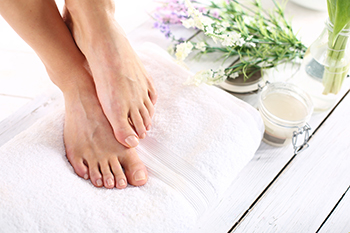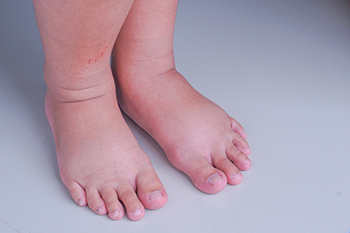Items filtered by date: August 2023
Persistent Ankle Pain from an Ankle Sprain

An ankle sprain can result in persistent pain and swelling despite rest and physical therapy. The location of the pain can indicate different issues. Frontal pain may suggest damage within the ankle joint or at the front of the ankle. Patients with joint surface injuries or front ankle problems typically experience discomfort during walking, running, or jumping activities, with increased pain on stairs or uneven surfaces. Lateral or side ankle pain may arise from synovitis, which is inflammation of the joint lining, due to a recent sprain, tendon tears, dislocation, or hidden fractures. Synovitis causes front ankle pain, worsening with activities like stair climbing and running, accompanied by swelling and reduced joint motion. Peroneal tendon tears usually manifest as delayed lateral ankle pain and swelling, aggravated by physical activity, especially on uneven terrain. Fractures can mimic sprains but require different treatments. Treatment for ankle sprains may include immobilization, medication, or surgery. If you have sprained your ankle, it is strongly suggested that you make an appointment with a podiatrist for a diagnosis and an individualized treatment plan.
Ankle pain can be caused by a number of problems and may be potentially serious. If you have ankle pain, consult with one of our podiatrists from Suncoast Podiatry Associates. Our doctors will assess your condition and provide you with quality foot and ankle treatment.
Ankle pain is any condition that causes pain in the ankle. Due to the fact that the ankle consists of tendons, muscles, bones, and ligaments, ankle pain can come from a number of different conditions.
Causes
The most common causes of ankle pain include:
- Types of arthritis (rheumatoid, osteoarthritis, and gout)
- Ankle sprains
- Broken ankles
- Achilles tendinitis
- Achilles tendon rupture
- Stress fractures
- Bursitis
- Tarsal tunnel syndrome
- Plantar fasciitis
Symptoms
Symptoms of ankle injury vary based upon the condition. Pain may include general pain and discomfort, swelling, aching, redness, bruising, burning or stabbing sensations, and/or loss of sensation.
Diagnosis
Due to the wide variety of potential causes of ankle pain, podiatrists will utilize a number of different methods to properly diagnose ankle pain. This can include asking for personal and family medical histories and of any recent injuries. Further diagnosis may include sensation tests, a physical examination, and potentially x-rays or other imaging tests.
Treatment
Just as the range of causes varies widely, so do treatments. Some more common treatments are rest, ice packs, keeping pressure off the foot, orthotics and braces, medication for inflammation and pain, and surgery.
If you have any questions, please feel free to contact our office located in Ocala, FL . We offer the newest diagnostic and treatment technologies for all your foot care needs.
Risk Factors Associated With Foot Corns

Foot corns are hard, raised bumps that form due to excessive pressure or friction on the foot, leading to the deposit of keratin in the skin layers. Corns on the feet typically develop on or between the toes, below the toenail bed, or on the sole of the foot. Common causes include wearing tight or ill-fitting shoes, walking or running barefoot, and prolonged standing. The symptoms of foot corns include discomfort while walking or standing, pain, and in some cases, a burning sensation. To treat foot corns, it is essential to soften the skin and remove the thickened layers. This can be achieved through soaking the feet in warm water or using a pumice stone. Addressing the underlying cause is crucial to prevent recurrence, and this may involve changing shoe type or size. Certain risk factors can increase the likelihood of developing foot corns, such as diabetes, foot deformities, poor blood circulation, and overpronation or oversupination while walking. If over-the-counter remedies don't provide relief, it is suggested that you make an appointment with a podiatrist, which is especially important for anyone with diabetes or foot deformities.
Corns can make walking very painful and should be treated immediately. If you have questions regarding your feet and ankles, contact one of our podiatrists of Suncoast Podiatry Associates. Our doctors will treat your foot and ankle needs.
Corns: What Are They? And How Do You Get Rid of Them?
Corns are thickened areas on the skin that can become painful. They are caused by excessive pressure and friction on the skin. Corns press into the deeper layers of the skin and are usually round in shape.
Ways to Prevent Corns
There are many ways to get rid of painful corns such as:
- Wearing properly fitting shoes that have been measured by a professional
- Wearing shoes that are not sharply pointed or have high heels
- Wearing only shoes that offer support
Treating Corns
Although most corns slowly disappear when the friction or pressure stops, this isn’t always the case. Consult with your podiatrist to determine the best treatment option for your case of corns.
If you have any questions please feel free to contact our office located in Ocala, FL . We offer the newest diagnostic and treatment technologies for all your foot and ankle needs.
Tips for Foot Care and Maintenance

Our feet are the foundation of our mobility, and practicing everyday foot care is essential for overall well-being. Healthy feet can be maintained when practical tips are followed. It is crucial to wear shoes that fit correctly and have adequate room for the toes to move freely. Daily hygiene can begin with washing the feet daily with soap and water and ensuring they are thoroughly dried to prevent bacterial and fungal infections. The skin can feel good when the feet are frequently moisturized, focusing on the heels and soles. Additionally, ingrown toenails may be prevented when the toenails are trimmed correctly. Foot muscles and flexibility may be improved with regular foot exercises such as toe curls and ankle circles. Excess weight can strain your feet, and maintaining a healthy weight can reduce the risk of foot problems. If you would like more information about effective foot care routines, it is suggested that you consult a podiatrist.
Everyday foot care is very important to prevent infection and other foot ailments. If you need your feet checked, contact one of our podiatrists from Suncoast Podiatry Associates. Our doctors can provide the care you need to keep you pain-free and on your feet.
Everyday Foot Care
Often, people take care of their bodies, face and hair more so than they do for their feet. But the feet are a very important aspect of our bodies, and one that we should pay more attention to. Without our feet, we would not be able to perform most daily tasks.
It is best to check your feet regularly to make sure there are no new bruises or cuts that you may not have noticed before. For dry feet, moisturizer can easily be a remedy and can be applied as often as necessary to the affected areas. Wearing shoes that fit well can also help you maintain good foot health, as well as making it easier to walk and do daily activities without the stress or pain of ill-fitting shoes, high heels, or even flip flops. Wearing clean socks with closed shoes is important to ensure that sweat and bacteria do not accumulate within the shoe. Clean socks help to prevent Athlete’s foot, fungi problems, bad odors, and can absorb sweat.
If you have any questions please feel free to contact our office located in Ocala, FL . We offer the newest diagnostic and treatment technologies for all your foot and ankle needs.
Stay Safe While Being Active This Summer
Reasons Why the Feet Can Swell

Swollen feet are a common foot condition. There are several causes of swollen feet, and relief may be found when determining the source of the problem. Lifestyle factors may contribute to getting swollen feet, which can range from eating habits to pregnancy. Some patients are afflicted with chronic venous insufficiency, which is a condition that limits blood flow from the feet to the heart. Having swollen feet may also characterize an infection and can be common among diabetic patients. Serious ailments involving blood clots can be known to cause swollen feet and ankles, and immediate medical attention is often sought. Additionally, swollen feet may indicate heart disease, which may cause the blood to back up and pool in the feet and ankles. If you have swollen feet, it is strongly suggested that you are under the care of a podiatrist who can effectively treat this condition.
Swollen feet can be a sign of an underlying condition. If you have any concerns, contact one of our podiatrists of Suncoast Podiatry Associates. Our doctors can provide the care you need to keep you pain-free and on your feet.
Swollen feet are a common ailment among pregnant women and people who stand or sit for extended periods. Aging may increase the possibility of swollen feet and patients who are obese often notice when their feet are swelling too. There may be medical reasons why swollen feet occur:
- Phlebitis - A condition that causes the veins to become inflamed and can also cause leg pain.
- Liver disease - This may lead to low blood levels of albumin which is a protein. This can cause fluid in the blood to pass into the tissues and several areas of the body can become swollen.
- Heart failure - When the heart doesn’t pump properly the blood that is normally pumped back to the heart can pool in the veins of the legs causing swollen feet.
- Kidney disease - One of the main functions of the kidneys is releasing excess fluid in the body. This type of condition can make it difficult for the kidneys to function properly, and as a result the feet may become swollen.
- Deep-vein thrombosis (DVT)- This is a serious condition where blood clots form in the veins of the legs. They can block the return of blood from the legs to the heart which may cause the feet to swell. It is important to be treated by a podiatrist if this condition is present.
Swollen feet can also be caused by bone and tendon conditions, including fractures, arthritis, and tendinitis. Additionally, there may be skin and toenail conditions and an infection may cause the feet to swell. Patients who take medicine to treat high blood pressure may be prone to getting swollen feet.
Many patients elevate their feet to help relieve the swelling and this is generally a temporary remedy. When a podiatrist is consulted the reason behind the swelling can be uncovered and subsequently treated.
If you have any questions please feel free to contact our office located in Ocala, FL . We offer the newest diagnostic tools and technology to treat your foot and ankle needs.

